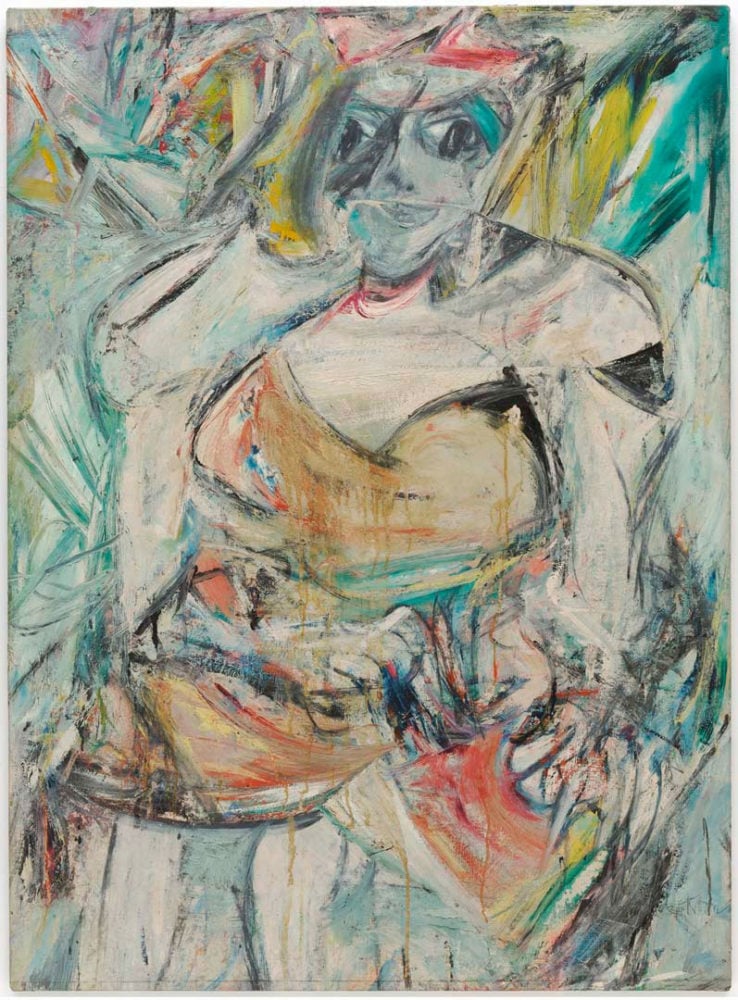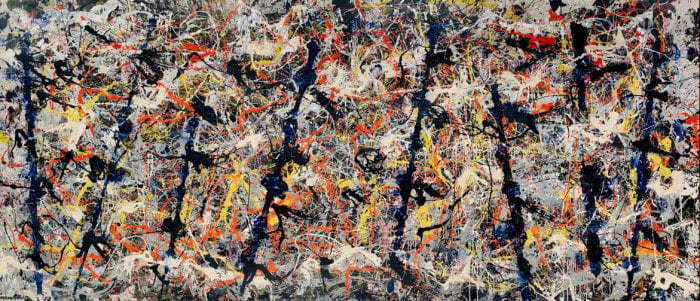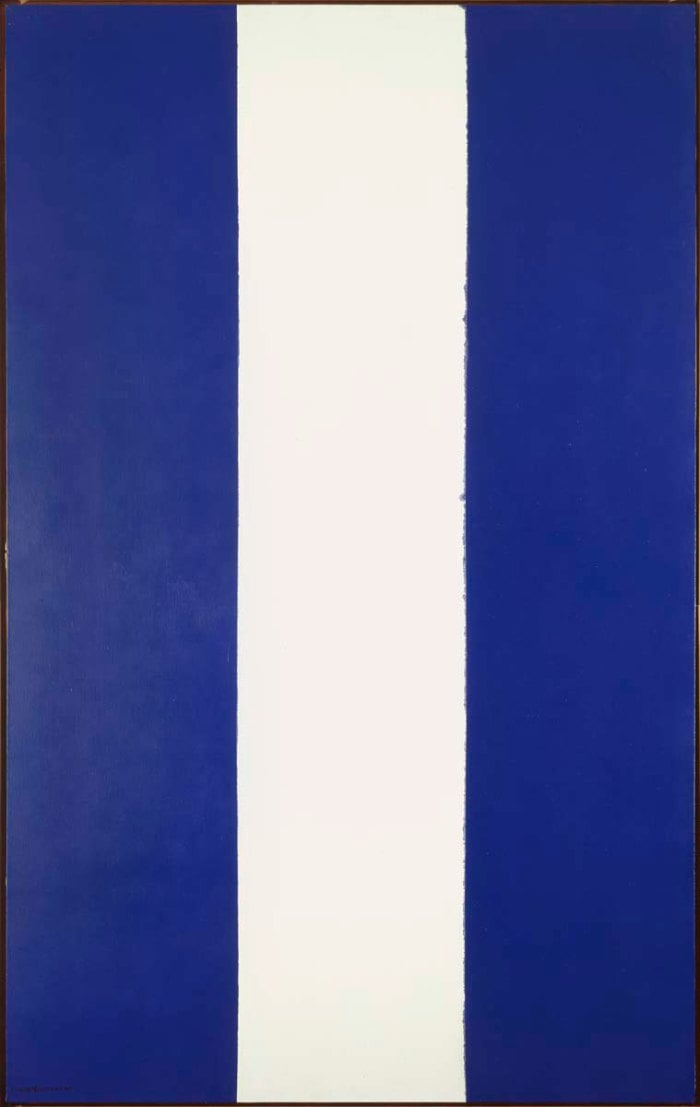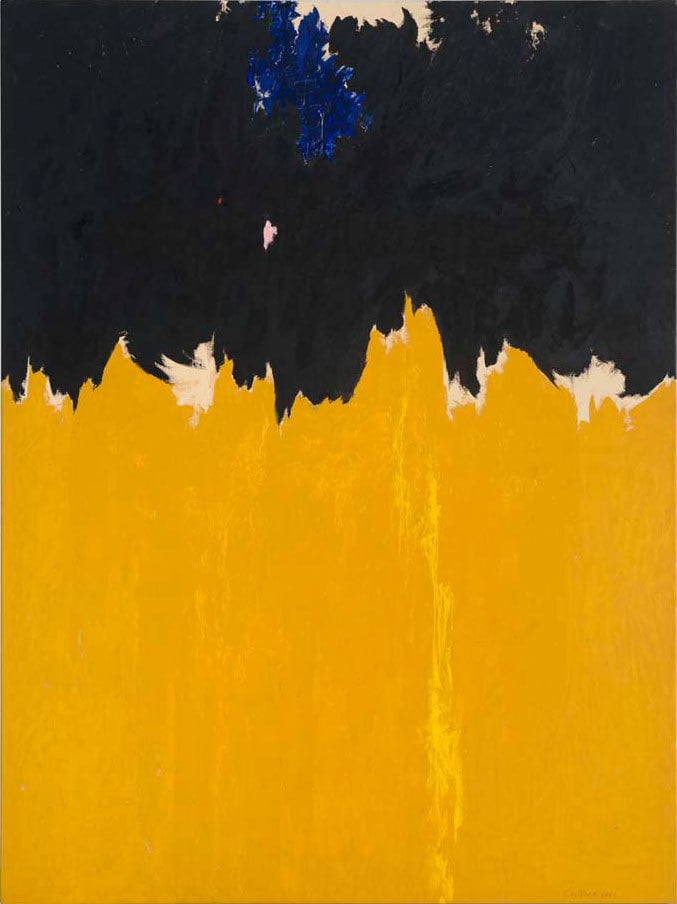Art & Exhibitions
London’s Royal Academy of Arts to Stage UK’s First Survey of Abstract Expressionism in Six Decades
Ab-Ex lovers, pencil this down.

Ab-Ex lovers, pencil this down.

Carol Civre

This coming fall London’s Royal Academy of Arts will put on the UK’s first survey dedicated to Abstract Expressionism in almost six decades. The much anticipated exhibition is curated by an authority on Abstract Expressionism, Dr David Anfam, and will feature over 150 paintings, sculptures, and photographs by big names such as Jackson Pollock, Mark Rothko, Clyfford Still, and Willem de Kooning.

Jackson Pollock Blue Poles (1952). Photo courtesy of the Pollock-Krasner Foundation ARS, NY and DACS, London 2016 via Royal Academy of Arts, London.
“Abstract Expressionism” explores the post-war move of the art world from Paris to New York, as well as a deeply expressive style of making art that mirrors the anxiety surrounding the Second World War.
Alongside the household names of Abstract Expressionism, the exhibition will also feature lesser-known artists and will focus on the multi-faceted nature of the movement, which is not often explored. The show will include the work of artists like Helen Frankenthaler, Adolph Gottlieb, Hans Hoffmann, Lee Krasner, and Ad Reinhardt. In addition, the photography portion of the show, a medium which is often overlooked when it comes to Abstract Expressionism, will feature names such as Aaron Siskin, Minor White, Harry Callahan, Herbert Matter, and Barbara Morgan.
In addition, the exhibition will include work from artists working during the Abstract Expressionist movement on the West Coast. This provides an alternative to the heavily New York-based perspective surrounding the movement and added context.

Barnett Newman Profile of Light (1967) . Photo courtesy of The Barnett Newman Foundation, New York / DACS, London Photo Archivo Fotográfico, Museo Nacional Centro de Arte Reina Sofía, Madrid via Royal Academy of Arts, London.
The Royal Academy of Arts will display the works according to the two main strands of Abstract Expressionism: namely the “color-field painting” characterized by paintings like those by Rothko and Newman, versus “gesture or action painting,” characterized by de Kooning and Pollock.
However, the show will expand beyond these confines, also examining deeper concerns of the Abstract Expressionist movement such as the rejection of the formalized image, myth-making, the sublime, and the relationship established between the art and the viewer.
Artwork will be traveling to London for this very special exhibition from institutions and collections all over the world. Noteworthy, is the first time the Clyfford Still Museum in Denver has lent nine major paintings by Still to one exhibition.
Other highlights will include Jackson Pollock’s Mural (1943), and Blue Poles (1952), which will be displayed jointly for the first time, as well as Willem de Kooning’s Woman II (1952), and Mark Rothko’s No. 15 (1957), among others.

Clyfford Still PH-950 (1950). Photo courtesy of the City and County of Denver / DACS 2016, the Clyfford Still Museum, Denver, CO via Royal Academy of Arts, London.
“Abstract Expressionism” will be on view at Royal Academy of Arts, London, from September 24, 2016- January 2, 2017.